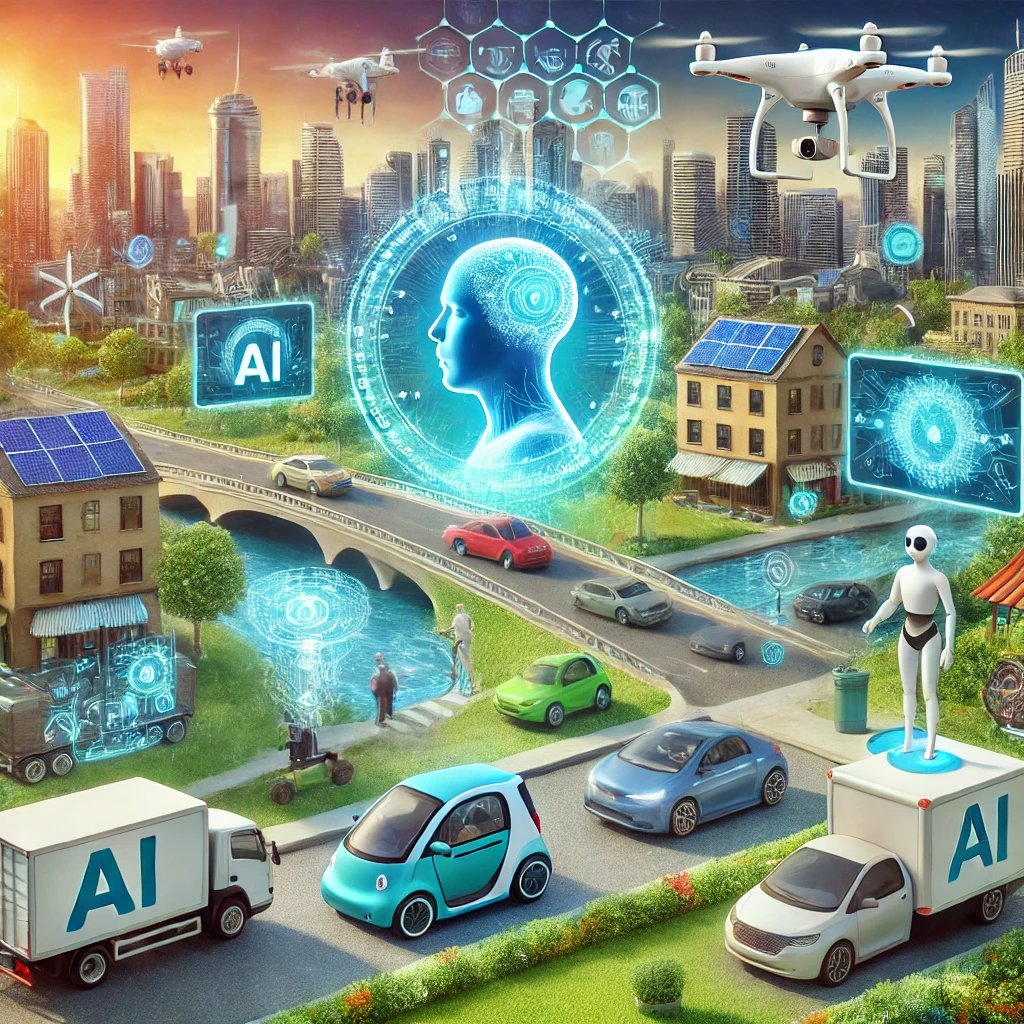Artificial Intelligence (AI) is no longer a futuristic concept; it’s a transformative force already reshaping industries and societies globally. From enhancing healthcare and revolutionizing transportation to empowering businesses with data-driven insights, AI is poised to redefine the future in unprecedented ways.
1. Revolutionizing Healthcare
AI is driving significant breakthroughs in healthcare, from diagnosing diseases to personalizing treatment plans. Machine learning algorithms analyze vast datasets to identify patterns that may go unnoticed by human doctors. AI-powered tools like imaging diagnostics and virtual health assistants are improving accuracy, reducing costs, and making healthcare accessible to underserved communities.
Moreover, drug discovery has been accelerated by AI. Companies like DeepMind and Moderna use AI to predict protein structures and develop vaccines in record time, revolutionizing how medical research is conducted.
2. Transforming Transportation
Autonomous vehicles are a prime example of AI’s transformative potential in transportation. Self-driving cars and trucks use AI algorithms to process real-time data from sensors, cameras, and GPS systems, ensuring safer and more efficient travel. This innovation promises to reduce accidents, optimize logistics, and lower carbon emissions.
Beyond autonomous vehicles, AI-powered traffic management systems are improving urban mobility by reducing congestion and optimizing public transportation networks.
3. Redefining Business Operations
AI is revolutionizing the way businesses operate. Intelligent automation tools are streamlining repetitive tasks, allowing employees to focus on strategic initiatives. Chatbots and virtual assistants enhance customer service by providing instant support, while predictive analytics enables better decision-making by identifying trends and opportunities.
In marketing, AI is personalizing customer experiences. By analyzing user behavior, AI tailors content and recommendations, leading to higher engagement and conversions. E-commerce platforms like Amazon have set the standard for AI-driven personalization.
4. Empowering Education
AI is reshaping education by providing personalized learning experiences. Adaptive learning platforms cater to individual student needs, ensuring better understanding and retention of concepts. Virtual tutors and AI-assisted grading systems save educators time and help students learn at their own pace.
Additionally, AI-driven insights are helping institutions identify areas for improvement and develop targeted interventions, making education more inclusive and effective.
5. Addressing Global Challenges
AI is playing a crucial role in tackling global challenges such as climate change and food security. Predictive analytics and AI-powered monitoring systems help optimize resource allocation, track environmental changes, and develop sustainable solutions.
In agriculture, AI-driven technologies like precision farming and drone monitoring are increasing crop yields and reducing waste, addressing food shortages worldwide.
The Road Ahead
While AI holds immense potential, its widespread adoption also raises ethical concerns. Issues such as data privacy, algorithmic bias, and job displacement must be addressed to ensure AI benefits everyone.
As we move forward, the collaboration between policymakers, technologists, and society will be essential in shaping AI’s trajectory. With thoughtful integration and governance, AI can create a future that is innovative, inclusive, and sustainable.


